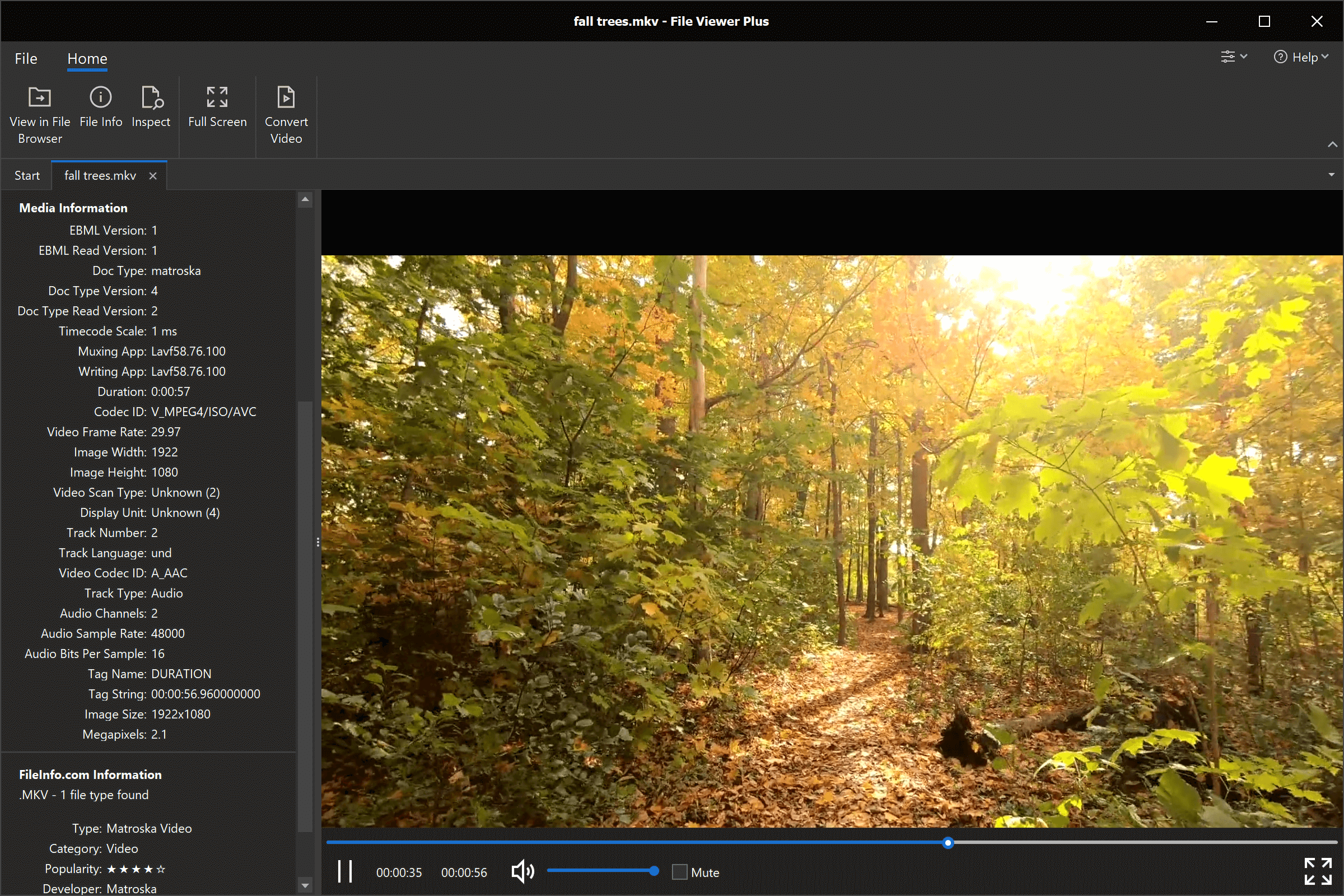Why MKV Movies Are The Ultimate Choice For Movie Buffs
If you're into movies, you've probably come across the term "MKV" more than once. MKV movies are not just another file format—they're a game-changer in the world of digital entertainment. Imagine watching your favorite flicks with crystal-clear quality, multiple audio tracks, and even subtitles all in one file. That's the magic of MKV, my friend. In this article, we’ll dive deep into why MKV movies are the go-to choice for cinephiles like you and me.
But wait, before we get into the nitty-gritty, let's set the stage. MKV movies have been around for a while now, but they’ve only recently gained massive popularity. Why? Because technology has caught up, and devices now support this versatile format effortlessly. No more hassle with codecs or compatibility issues. It's smooth sailing with MKV.
Now, if you're wondering whether MKV movies are worth the hype, stick around because we're about to break it down for you. From understanding what MKV is to exploring its benefits and even touching on how to play these files, this article is your ultimate guide. So grab your popcorn, and let's get started!
- Inguagiato Noelle A Rising Star In The Spotlight
- Jerome Berry The Man Behind Halle Berrys Legacy Ndash A Deep Dive Into Her Dads Life
What Exactly Are MKV Movies?
First things first, let's define what MKV movies actually are. MKV, or Matroska Video, is an open-standard container format that can hold multiple media types in one file. This means you can have video, audio, subtitles, and even metadata all bundled together. Think of it as a Swiss Army knife for your movie collection.
One of the coolest things about MKV is its flexibility. Unlike other formats that lock you into specific codecs, MKV supports a wide range of codecs, making it super versatile. Whether you're into high-definition blockbusters or classic films, MKV can handle it all with ease.
Here’s a quick breakdown of what makes MKV special:
- Niall Horans Matter Relationships Love Life And Lessons
- Husband Dawn Staley The Man Behind The Legend
- Supports multiple audio tracks, perfect for those who love watching movies in different languages.
- Includes subtitles within the file, eliminating the need for separate subtitle files.
- High-quality video and audio without bloated file sizes.
- Compatible with a variety of devices and media players.
The Benefits of Choosing MKV Movies
Now that we know what MKV movies are, let's talk about why they're so awesome. The benefits of using MKV as your primary movie format are numerous, and they cater to both casual viewers and tech-savvy enthusiasts alike.
1. Superior Quality
When it comes to video quality, MKV doesn't disappoint. It supports high-definition video with minimal loss of quality, ensuring that every frame looks as sharp as possible. Whether you're watching on a big screen or a small device, the clarity is unmatched.
2. Versatility
As mentioned earlier, MKV is incredibly versatile. You can include multiple audio tracks, subtitles, and even chapters within a single file. This makes it perfect for international viewers who want to watch movies in their native language or those who prefer reading subtitles for better understanding.
3. Small File Sizes
Despite its high-quality output, MKV manages to keep file sizes relatively small. This is thanks to its efficient compression algorithms, which ensure that you don't waste storage space on your devices. It's a win-win situation!
4. Cross-Platform Compatibility
Another great thing about MKV is its compatibility with a wide range of devices and platforms. From smartphones to smart TVs, MKV plays nicely with almost everything. No more worrying about whether your device will support the file format.
How to Play MKV Movies
Playing MKV movies is easier than you might think. Most modern media players support MKV out of the box, but if you're using an older device or software, you might need to install a codec pack or update your player. Here are some of the best media players for MKV movies:
- VLC Media Player: A free and open-source player that supports almost every format under the sun, including MKV.
- Kodi: A powerful media center that can handle MKV files with ease, plus it offers tons of customization options.
- MPV: A lightweight player known for its speed and efficiency, perfect for those who want a no-frills experience.
If you're still unsure about which player to use, VLC is always a safe bet. It's reliable, user-friendly, and constantly updated to support the latest formats.
Why MKV Movies Are Better Than Other Formats
Let's face it—there are plenty of video formats out there, each with its own pros and cons. So, what makes MKV stand out from the crowd? Here's a comparison to help you understand:
1. MKV vs MP4
While MP4 is widely used and supported, MKV offers more features and better flexibility. MKV supports more codecs and can include multiple audio tracks and subtitles, whereas MP4 is more limited in this regard.
2. MKV vs AVI
AVI used to be the go-to format for many years, but it lacks the advanced features and quality that MKV provides. MKV is also more efficient in terms of file size, making it a better choice for modern devices.
3. MKV vs MOV
MOV, often used in Apple products, is great for professional video editing but falls short when it comes to versatility. MKV, on the other hand, is more universal and can be played on a wider range of devices.
Tips for Downloading MKV Movies Safely
Downloading MKV movies can be a bit tricky if you don't know where to look. The internet is full of websites offering free downloads, but not all of them are trustworthy. Here are some tips to ensure you download MKV movies safely:
- Stick to Reputable Websites: Use well-known and trusted platforms for downloading movies. Some popular options include official movie streaming services or torrent sites with good reputations.
- Check File Integrity: Before downloading, make sure to verify the file size and hash to ensure you're getting a legitimate copy.
- Use Antivirus Software: Always scan downloaded files with a reliable antivirus program to avoid malware or viruses.
Remember, downloading movies illegally can have legal consequences, so always make sure you're following the rules and regulations in your country.
How to Convert Videos to MKV Format
If you already have movies in other formats and want to convert them to MKV, there are several tools available that can help you do this. Here's a quick guide:
1. HandBrake
HandBrake is a free and open-source video transcoder that can convert almost any video format to MKV. It's user-friendly and offers a variety of presets to make the process easier.
2. FFmpeg
For those who prefer a more technical approach, FFmpeg is a powerful command-line tool that can handle complex video conversions. It's highly customizable and perfect for advanced users.
3. Online Converters
If you don't want to install any software, there are plenty of online converters that can do the job for you. Just make sure to choose a secure and reputable service.
Common Issues with MKV Movies and How to Fix Them
Even though MKV is a robust format, you might encounter some issues from time to time. Here are a few common problems and how to solve them:
1. Playback Issues
If your MKV movie isn't playing properly, it could be due to missing codecs. Installing a codec pack like K-Lite Codec Pack can solve this problem. Alternatively, using a player like VLC, which includes built-in codecs, can also help.
2. Subtitle Problems
Sometimes subtitles in MKV files may not display correctly. To fix this, you can try changing the subtitle settings in your media player or using a subtitle editor to adjust the timing and formatting.
3. File Corruption
If your MKV file is corrupted, you can try using a file repair tool to fix it. There are several free and paid options available online, so do some research to find the best one for your needs.
Exploring the Future of MKV Movies
As technology continues to evolve, so does the MKV format. Developers are constantly working on improving its features and compatibility, ensuring that it remains a top choice for movie enthusiasts. Here's a glimpse of what the future might hold:
1. Enhanced Streaming Capabilities
With the rise of streaming services, MKV is likely to become even more integrated into this space. Expect to see more platforms adopting MKV as their preferred format for delivering high-quality content.
2. Improved Compression Techniques
Advancements in compression algorithms will allow MKV files to become even smaller without sacrificing quality. This means faster downloads and less storage space required.
3. Increased Device Support
As more devices become capable of playing MKV files natively, the format will become even more ubiquitous. This will make it easier for everyone to enjoy their favorite movies in MKV format.
Conclusion: Dive Into the World of MKV Movies Today!
There you have it, folks—a comprehensive guide to MKV movies and why they're the ultimate choice for movie lovers. From their superior quality and versatility to their small file sizes and cross-platform compatibility, MKV offers something for everyone. So, whether you're a casual viewer or a tech enthusiast, give MKV a try and see the difference it can make in your movie-watching experience.
Before you go, don't forget to share this article with your friends and family. Who knows? You might just convert them into MKV fans too! And if you have any questions or comments, feel free to drop them below. We'd love to hear from you!
Happy movie-watching, and remember—MKV is the way to go!
Table of Contents
- What Exactly Are MKV Movies?
- The Benefits of Choosing MKV Movies
- How to Play MKV Movies
- Why MKV Movies Are Better Than Other Formats
- Tips for Downloading MKV Movies Safely
- How to Convert Videos to MKV Format
- Common Issues with MKV Movies and How to Fix Them
- Exploring the Future of MKV Movies
- Conclusion: Dive Into the World of MKV Movies Today!
Article Recommendations
- Damon Wayans And Lisa Wayans A Dynamic Duo You Cant Ignore
- Omari Hardwick Siblings Ages A Deep Dive Into Family Ties



Detail Author:
- Name : Prof. Dasia Thiel
- Username : wehner.juana
- Email : abernathy.florine@moore.com
- Birthdate : 1996-06-01
- Address : 53829 Mae Gateway Lake Lionel, OR 29612-7545
- Phone : 857.928.3306
- Company : Sauer-Bode
- Job : Board Of Directors
- Bio : Quo harum quia aperiam inventore aspernatur et eveniet assumenda. Molestias recusandae saepe dignissimos dolor qui maxime maxime quia. Ut eum asperiores quia et quia rerum.
Socials
facebook:
- url : https://facebook.com/micaela.fay
- username : micaela.fay
- bio : Soluta ea dolores fuga voluptatem.
- followers : 2456
- following : 2147
linkedin:
- url : https://linkedin.com/in/fay1999
- username : fay1999
- bio : Est nisi in aut aut.
- followers : 4702
- following : 1346